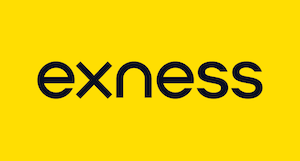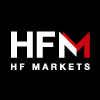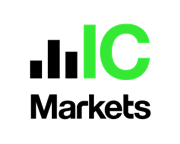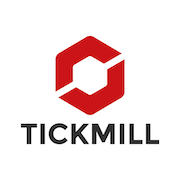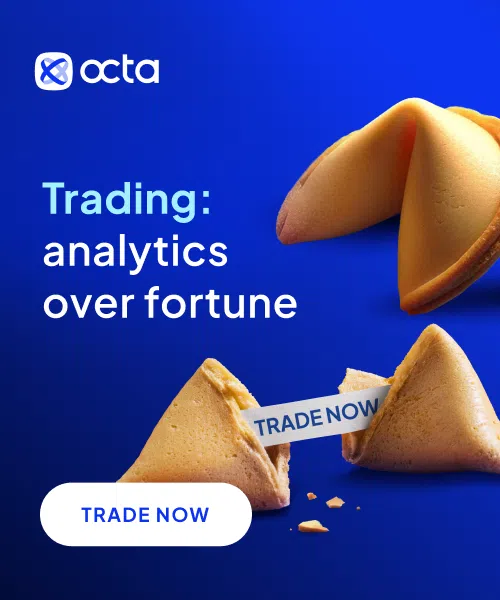For over a decade, FxScouts Nigeria has been reviewing forex brokers and providing in-depth analyses. Our extensive research and unique testing methodology ensures that all broker reviews are accurate and fair, with hundreds of thousands of data points generated annually. Since 2012, we’ve tested over 180 brokers across global and African markets. Our team of professionals are frequently cited in global and regional media, shaping market conversations and trends.
-
Best Forex Brokers
Our top-rated Forex brokers
-
NGN Trading Accounts
Save on conversion fees
-
Brokers for Beginners
Start trading here
-
Forex Demo Accounts
Learn to trade with no risk
-
ECN Brokers
Trade with Direct Market Access
-
No-Deposit Bonuses
Live trading with no deposit
-
High Leverage Brokers
Extend your buying power
-
Lowest Spreads Brokers
Tight spreads and low commissions
-
Islamic Account Brokers
Best accounts for Muslim traders
-
Market Maker Brokers
Fixed spreads & instant execution
-
MetaTrader 4 Brokers
The top MT4 brokers in Nigeria
-
MetaTrader 5 Brokers
The top MT5 brokers in Nigeria
-
TradingView Brokers
The top TradingView brokers
-
cTrader Brokers
The top cTrader brokers in Nigeria
-
Forex Trading Apps
Trade on the go from your phone
-
Copy Trading Brokers
Copy professional traders
-
All Trading Platforms
Find a platform that works for you
75-90% of retail traders lose money trading Forex and CFDs. You should consider whether you understand how CFDs and leveraged trading work and if you can afford the high risk of losing your money. We may receive compensation when you click on links to products we review. Please read our advertising disclosure. By using this website you agree to our Terms of Service.
- Octa - Best Swap-free Trading Accounts
- Pepperstone - Best ECN Trading Execution
- FOREX.com - Best Broker for Serious Beginners
- Exness - Best Trading Account Conditions for Beginners
- AvaTrade - Best Forex Trading App
- HFM - Highest Leverage for Market Execution
- XM - Broker with the Lowest Spreads in Nigeria
- FBS - Lowest Minimum Deposit Broker
- IC Markets - Tightest Spreads
Best Forex brokers in Nigeria
Comparing Forex Brokers in Nigeria
Although international brokers accept clients from most countries, trading conditions and regulatory supervision may be different for Nigerian traders. To find the best Forex broker for Nigerian residents, we need to understand account conditions for Nigerian clients in detail.
To test each broker’s trading platform, we opened an account, set up the trading software, read through the educational material, and deposited and traded 100.000 ₦ of our money. We also created all kinds of trouble for the customer service teams, read through the fine print in the client agreements, and tested how long it took to withdraw our money. In our test, we investigated:
Broker Regulation: Regulators keep an eye on Forex brokers to make sure they’re behaving legally and ethically. Some regulators, such as ASIC, the FCA, and CySEC, are better at keeping brokers honest than others.
Account Supervision: Most brokers are supervised by multiple international regulators. As a Nigerian resident, it is important to know which regulatory authority will supervise your trading account. It is common for brokers to open trading accounts for Nigerian residents under their offshore licenses (Mauritius, Seychelles, Vanuatu, etc.) to offer higher leverage or to bypass powerful client protections. Traders with accounts registered under offshore licenses are not protected by the FSRCC and are open to the additional risks of broker bankruptcy, fraudulent activity, or unfavourable trading conditions like a lack of negative balance protection.
Broker Trading Conditions and Costs: Better Forex brokers will often have lower trading costs, meaning that spreads are tight and minimum deposits are low. Trading execution should be lightning-fast and with little or no intervention. Forex brokers should also publish their spreads, execution policy, and a list of all CFDs available to Nigerian traders. We often see that trading conditions and negative balance protection availability change depending on a trader’s country of residence.
Broker Education and Analysis: Brokers should offer beginner traders a coherent and well-structured trading course alongside a demo account. Brokers should supply detailed market analysis to highlight trading opportunities and provide a complete learning experience.
Broker Trading Platform: Brokers will have their own trading platform or provide support for a third-party platform, such as MT4, MT5, or cTrader. Some brokers will do both. Most Forex traders generally have a platform preference, so brokers with multiple platforms are more likely to have the platform a trader wants to use. Platform availability may vary between countries of residence, so our research notes which platforms are available for Nigerian residents.
Octa – Best Swap-free Accounts
Founded in 2011, Octa offers trading on 52 Forex pairs, commodities, indices, and over 150 stock CFDs. The Octa website, features two account types and an unlimited demo account. Octa supports the world’s two most popular trading platforms, MT4 and MT5, and its new intuitive OctaTrader platform, which may be easier for many beginners to get started with. Octa has also launched its own trading app, available on iOS and Android devices, which features seamless integration with your desktop trading account and 24/7 customer service.
Octa’s accounts have some of the lowest trading costs, with spreads starting at 0.6 pips on the EUR/USD with no commission. All accounts have a minimum deposit of 20 USD, 1:1000 leverage on currency pairs and a choice between EUR or USD as your account currency. The main difference is that trading on stock CFDs is only available on the MT5 platform.
OCTA FEATURES
- Copy-trading available on all accounts
- Constantly updated promotions and bonuses for Nigerian clients
- Free AutoChartist for traders with a 500 USD balance
- Islamic trading accounts are available for all platforms and account types.
Pepperstone – Best ECN Trading Execution
Pepperstone is the leading Australian ECN/STP Forex broker. Most trades on Pepperstone have execution in less than 30ms, which is ideal for scalpers and clients who run expert advisors. Both accounts offer market execution with some of the tightest spreads in the industry – the Razor Account has spreads from 0 pips for the EUR/USD and 7 USD commission. Furthermore, Pepperstone supports all three major trading platforms – MT4, MT5 and cTrader.
Pepperstone’s award-winning, 24-hour support provides the foundation for its excellent customer service, where personalised assistance is available via several methods. For beginners interested in ECN trading, Pepperstone’s also has one of the better education sections offered by a market execution broker.
Forex.com – Best Broker for Serious Beginners
Founded in 2001, Forex.com is a well-regulated broker with a 100 USD minimum deposit and low fees that is more suited to serious beginners and more experienced traders. Some beginners with low minimum deposits will be put off by the high trading costs on Forex.com’s entry-level Standard and MT5 accounts. However, experienced traders will be interested in the Commission and DMA accounts, with minimum deposits of 100 USD and 25,000 USD, respectively. These accounts have some of the most competitive spreads (0.0 pips on the EUR/USD) combined with some of the lowest commissions in the industry.
FOREX.COM FEATURES
- Excellent education and market analysis for traders of all skill levels
- Support for MT4, MT5, and the Forex.com web-based trading platform,
- Range of trading tools on offer, including Trading Central, Trading View, SMART Signals, and subsidised VPS hosting.
- Wide range of tradable assets: over 91 currency pairs, 4500 share CFDs, commodities, indices, precious metals, and cryptocurrencies.
Exness – Best Trading Account Conditions for Beginners
Founded in Russia in 2008, Exness Group has over 200,000 clients worldwide and offers trading on 100+ Forex pairs, a small range of cryptocurrencies, 70+ stock CFDs, indices and commodities. Exness has nine account types on the MT4 and MT5 platforms – many more than most brokers. The Standard Cent Account is aimed at beginners who want low fees and a low minimum deposit with a 1 USD minimum deposit, micro-lots unlocked, and spreads as low as 0.3 pips. The only disadvantages to this account are that traders will only be able to trade currency and metals and MT5 is not supported.
EXNESS FEATURES
- Nine accounts on the MT4 and MT5 trading platforms
- ECN Accounts for experienced traders with raw spreads and 7 USD commission
- Automated instant withdrawal system, with free withdrawals to e-wallets.
- 24/7 customer service
AvaTrade – Best Forex Trading App
Who AvaTrade is for: Traders who want a good broker with a well-designed mobile trading app, low costs, and free withdrawals.
Why we like AvaTrade: AvaTrade’s biggest selling points are its great trading app, free deposits and withdrawals and low trading fees, with Forex spreads starting at 0.9 pips on the EUR/USD. Traders on the move will like AvaTrade’s well-designed mobile app, AvaTradeGO, with its smart risk management tools and direct connection to AvaSocial, AvaTrade’s popular social trading system. While AvaTrade’s minimum deposit of 100 USD isn’t the lowest you can find, it’s still low enough for most beginners. Another highlight is the 13 cryptocurrency pairs available to trade at AvaTrade, more than most other brokers in Nigeria. Cryptocurrency traders will also appreciate the dedicated 24/7 crypto trading customer support. It’s no secret that share CFDs are also very popular right now, and AvaTrade has that sector covered too, with 625 share CFDs to trade, including famous tech stocks like Google, Apple, and Amazon.
AvaTrade’s drawbacks: As we noted above AvaTrade has low trading fees, but they are not the lowest available in Nigeria – some brokers have spreads down to 0.6 or 0.7 pips on the EUR/USD. And it’s possible to find much lower minimum deposits, all the way down to 3 USD in some cases. But most serious beginners will want a deposit of 100 USD or more anyway.
HFM (formerly known as HotForex) – Highest Leverage for Market Execution
Founded in 2009 and headquartered in Cyprus, HFM is the global brand name of HF Markets Group. Regulated by the FCA, CySEC and the FSCA, HFM provides trading on Forex, commodities, indices, shares, bonds, and ETFs – though it recently stopped offering crypto CFDs. With No-Dealing Desk STP execution for all trades, client’s trades are posted directly to the market, and leverage is available up to 1000:1 on the Micro Account where the minimum deposit is 0 USD.
HFM FEATURES
- Well-regulated with low-cost Trading Accounts
- Tight spreads, starting at 1.00 pips pip on the Micro Account.
- Detailed market analysis for beginners and professionals, including daily market news, trade analysis, and outlooks.
- Customer support available 24/5 from a toll-free local phone number to assist.
XM – Nigerian Broker with the Lowest Spreads
Founded in 2009, XM is one of the most well-regulated brokers in the Forex industry and offers CFD trading on Forex, stock CFDs, commodities, equities, precious metals, energies, and shares. XM are well known for its low trading fees, wide account choice, execution speed and a wide range of CFD assets available on both the MT4 and MT5 platforms. Hedging, scalping and algorithmic trading are all permitted.
XM FEATURES
- Both MT4 and the MT5 trading platforms are supported
- The XM Ultra-Low account: A minimum deposit of 50 USD and spreads start at 0.6 pips with no commission.
- All accounts have a no-requotes execution policy and 99.35% of XM orders are executed in less than one second.
FBS – Lowest Minimum Deposit Broker
Who FBS is for: With a wide range of accounts, FBS will appeal to experienced traders looking for high leverage and low fees or beginners looking for low minimum deposits and cryptocurrency trading.
Why we like FBS: FBS’ strength is in its range of accounts, with trading conditions for all types of traders. Beginners will focus on its Cent Account with its 1 USD minimum deposit or the Micro Account with a 5 USD minimum deposit, more experienced traders will be interested in the ECN account with a 1000 USD minimum deposit, raw spreads, and a 6 USD commission. Other accounts include a Standard Account with a 100 USD minimum deposit and Zero Spread Account with a 500 USD minimum deposit. Experienced traders will appreciate the high leverage available, with all accounts except the ECN account offering leverage of 3000:1. Beginners will also like the low trading fees on the entry-level accounts, with Cent Account spreads starting at 0.8 pips on the EUR/USD. Cryptocurrency trading is also a big draw here, with 37 cryptocurrencies available to trade, many more than most other brokers.
FBS drawbacks: As most traders know, high leverage is a double-edged sword. While it can greatly increase profitability, it also greatly increases risk. An FBS trading account with only a few dollars in it but 3000:1 leverage can be wiped out in an instant. And while FBS lets clients use the MT4 and MT5 trading platforms, its cryptocurrency products can only be traded using the FBS Trader mobile app. As many people already use their phones to trade, this isn’t the end of the world, but the FBS Trader app is currently only available on Android devices, not iPhones.
IC Markets – Tightest Spreads
Founded in 2009, IC Markets is an Australian and ASIC-regulated ECN broker with some of the tightest spreads in the world. Low commissions on all three major platforms are also a big draw, with a simple account structure that will satisfy all traders. IC Markets offers traders:
- Uncomplicated trading conditions and tight spreads
- Choice between MT4, MT5 or cTrader
- Excellent education and customer support
Tight Spreads + Simple Account Choice
IC Markets offers three simple accounts with variable spreads on the MT4, MT5 and cTrader platforms. Two Raw Spread Accounts are available on either cTrader, MT5 or MT4, and a Standard Account is available on MT4 and MT5. The Raw Spread Accounts charge a small commission of 3 USD (cTrader) or 3.5 USD (MT4/MT5), but spreads are often down to 0 pips, averaging 0.1 pips on the EUR/USD pair. The Standard Account charges no commission but spreads start at 1 pip. IC Markets pricing relies on 25 different liquidity providers ensuring deep liquidity and the lowest spreads in the industry.
Education and Support for Beginners
IC Markets is rare amongst ECN brokers, as it provides a welcoming environment for beginner traders. IC Markets offers an archive of structured course material, detailed independent market analysis and expert-led webinars. IC Markets also provides excellent technical support for all three trading platforms 24/5 as well as more general queries.
What is the Foreign exchange market?
The foreign exchange market, also known as the forex (or even more simply, the FX market), is the largest financial market in the world. Every day, trillions of pounds of global currencies are traded in what are called “pairs”, i.e. the exchange of one currency for another, such as pounds for dollars, euros for Japanese yen, etc. These transactions are carried out five days a week, 24 hours a day around the globe and determine the value of every currency on the planet second by second, based on supply and demand. So, if the pound is in demand, its value against, for example, the dollar will rise and vice versa.
Given its scale and breadth, forex trading is easily accessible by individual investors, who can open an account with a few hundred pounds and begin trading immediately. But it is easy to lose money, especially if you are a beginner. Trading successfully requires effort, discipline and a determination to learn as much as you can about the market before you start. You also need to understand the regulations governing the market, the costs of trading and which brokers to use. Most importantly, you should understand the risks and disadvantages before deciding whether forex trading is for you.
Why does the forex market exist?
There are many reasons why people trade currencies. Nigerian companies may need to buy dollars to pay for American imports, or they may need euros to pay for the acquisition of a company based in Europe. Central banks, such as the Bank of England, can intervene in FX markets, buying and selling currency to manipulate its value for reasons of economic policy. Speculators also drive a very large part of the market, trading with the aim of generating a profit.
Large financial institutions, multinational corporations and hedge funds dominate the forex market, which reached a value of US$6.6 trillion per day in April 2019, according to the latest statistics.[i] That size means it is a hugely liquid market, i.e. it is very easy to buy and sell currencies because there are so many buyers and sellers in the market for most currencies.
Market drivers
The British pound is a free-floating currency. In other words, the value of the pound in the FX markets is determined by supply and demand. This is the case for the currencies of most advanced economies. By contrast, some currencies, such as the Chinese renminbi (RMB), have a fixed exchange rate. The Chinese authorities determine the value of the RMB against the dollar and keep the link until they decide to alter the exchange rate. Clearly, there is no potential for individual traders to profit from trading currencies with a fixed exchange rate.
The value of a floating currency such as the UK pound, however, is constantly moving up and down against other currencies. Often these movements are relatively small, so the pound may begin the trading day buying one dollar and forty cents and end a fraction of a cent higher or lower, or even back at its opening level. But dramatic economic or political news can spark much greater volatility. For example, the pound fell by around 10% the day after the UK had voted to leave the European Union, back on 23 June 2016. Traders, fearing a prolonged period of political and economic uncertainty, sold the pound as quickly as they could.[ii]
Economic developments are also a key influence. New data suggesting the economy is growing faster than anticipated might spark concerns that the Bank of England could raise interest rates to rein in growth. Higher interest rates enhance the appeal of holding a currency, since you are getting a bigger return on your money. That outlook consequently boosts demand for the pound and its value rises. Similarly, if the UK’s economic outlook darkens and traders anticipate the Bank of England will cut interest rates, they will sell the pound, so depressing its value against other currencies.
That is why FX traders follow economic, financial and political news so closely, looking for any hint of information that could sway the value of the pound. They are hoping to react before other traders spot the development. Or they may take bets on a likely development, believing they have some insight that other traders lack. So, for example, on the day of the Brexit vote, before the results were announced, the pound soared in value because many traders were convinced that Remain had won.
Why is forex trading popular in Nigeria?
Forex trading is the largest and most easily accessible market in the world. The costs involved are relatively low compared with other markets, there are lots of brokers to choose from in Nigeria, and it is relatively easy to understand the ways in which you can trade the market. There are many freely floating currencies and since they can all be traded against each other there are a huge number of currency pairs to trade. A vast amount of information is available to would-be traders, ranging from how to get started to outlining potentially profitable trading strategies.
You can trade from your living room using a fairly basic computer if you download the appropriate trading software, and it is relatively easy to set up an account with a broker. Unlike other financial markets, you can also exploit the concept of “leverage”, where you make use of borrowed money to increase your potential profits (and your losses). To explain what this means, currency pairs are traded in specific amounts called lots. They tend to be in 100,000 units of a currency, so, for example, if you are trading in the pound sterling against the US dollar, you would buy or sell £100,000 at a time. Since most people don’t have £100,000 available to trade, the broker effectively offers to lend you money. So, they may allow you to trade in a lot of £100,000 by opening an account with £1,000 and lend you the remainder. The initial £1,000 is known as the margin and your leverage, in this case, would amount to 100 to one (100:1).
As we mentioned, as well as increasing potential profits, leverage can dramatically increase risk. There are methods you can use to contain risk, but that is a topic for another article.
The disadvantages of forex trading
Forex trading requires a considerable commitment. It takes time to learn how to trade profitably, and when you start to trade you may have to spend many hours per day on your computer screen following and researching what is happening in the market – and why – in preparation for your trading day. When that day is finished, you will need to analyse what happened and why your trading activities succeeded or failed, so that you can apply the lessons learnt to the next day’s trading. There could be days when you lose money and it is easy to become disheartened. There is certainly no guarantee of success. FX trading can be risky and you can lose money or you may find that it is simply not something you like or have the temperament for. You have to be patient, for example, waiting for opportunities to arise, and the market can experience bouts of extreme volatility that you may find highly stressful.
Introduction to the regulation of the Nigerian market
The financial market regulator in Nigeria is the Securities and Exchange Commission (SEC). This body regulates the Nigerian Stock Exchange, the bonds market and the operators within the equity trading industry. Nigeria’s financial markets are not as robust as you would find in the Western world. Short selling is not permitted, and the SEC has not made any moves to regulate the Forex market or other exotic financial trading products. Rather, it has been content with providing disclaimer warnings to the public, asking them to only invest in markets approved by the SEC and only to trade with money they can afford to lose. You might by now be building the picture that there is a huge regulatory absence in the Forex industry in Nigeria.
Prior to 2010, the Forex market in Nigeria was hit by many scams and local Forex traders lost millions of dollars to offshore brokers who simply disappeared with their clients’ funds. There is now better awareness about the need to use brokers who are regulated. However, many local traders still patronize unregulated brokers who tempt them with over-the-top bonus offers. Some established names in the local financial markets have begun to lobby the SEC to follow the examples of Kenya, South Africa and Mauritius, by enacting regulatory protocols specifically for the Forex market.
However, Nigeria is a very ethnically diverse country and certain activities such as the operations of companies in the financial markets are dominated by certain ethnic nationalities. Getting bills to back regulation of such industries to pass in the Nigerian Senate and House of Representatives usually requires a lot of collective bargaining that sometimes has to cross these ethnic lines. This makes it not only a difficult proposition but also a lengthy process. A case in point is a bill that seeks to regulate Nigeria’s highly controversial oil sector, which has still not been passed close to 20 years since its introduction.
FX trading scams
The regulatory gap has led to an increase in Forex broker interest in the country, and also unlicensed money managers, signals providers, introducing brokers and schemes which resemble Ponzi-style operations.
A number of renowned Forex firms have entered the country and established local branches, including Instaforex, Alpari, Liteforex and Avatrade. ACM Brokers also opened in Nigeria in 2019. Strangely, these firms are not licensed by the Securities and Exchange Commission to offer Forex trading to Nigerian traders. Rather, they are riding on the licenses of their parent firms in Cyprus and other offshore locations to deliver their product offerings to the local market.
These Forex brokers in Nigeria are not the problem though, as they have conducted business largely with respectability. The biggest scam operations in the Forex market in Nigeria, border on the so-called “trade for me” business models, which are basically a system where someone offers to trade Forex accounts for others with no money management licenses. SEC provides licenses for money managers in Nigeria, but it is virtually impossible to see any one of these “money managers” with an actual license.
In the last three years, three companies have come into the market offering returns of up to 30% per month for money lodged with them. The companies say they will invest your money into the Forex market. The biggest of these companies is MBA Trading, which has hosted a number of high-profile events in which top-ranking members of the Nigerian government have attended. The company claimed it had an SEC license, but in a strange twist, the SEC named them as an unlicensed company and warned the public against doing business with them. Those who claim to have been paid regularly by MBA Trading have hailed them as the best thing to have ever happened to the Nigerian Forex industry, but critics say their mode of operations and returns paid to clients (which exceed average returns on Forex trading) smack of a well-oiled Ponzi scheme waiting to unravel.
The disadvantages of using a regulated broker
Regulations can limit your options when trading FX. Regulations require brokers to follow rules that are specific to their country of origin. An example is leverage limitation: retail traders with UK brokers are limited to 30:1 leverage. An unregulated broker, by contrast, could offer a 500:1 ratio. Offshore brokers also tend to have lower costs, which they can pass onto you in terms of lower trading fees in terms of lower commissions or better spreads.
Islamic Accounts
Forex trading is conducted mostly by Nigerians from ethnicities in the mostly Christian South of the country, with very little participation from the mostly Muslim North. Therefore, Islamic accounts are not considered an important consideration among the Nigerian Forex trading population. Most Muslim investors prefer to use the Jaiz Bank, Nigeria’s only Islamic-investment compliant financial institution, to run their investments.
Comparing forex brokers in Nigeria
A forex broker provides traders with a platform that gives them access to the FX market and allows them to buy and sell currencies. Opening an account is simple and can be done online. You will be asked to provide proof of identity and a deposit.
Using an offshore broker – the pros and cons
You can open an account with an offshore broker, i.e. a company based outside Nigeria, or even outside Africa.
There are advantages and disadvantages to using an offshore broker. The main advantage, as discussed above, is that you won’t be subject to the restrictions placed on a regulated broker. The disadvantages include the fact that if you use an offshore broker, it will be subject to the regulations of that country and it may not be as well supervised at all. If things go wrong and your broker is registered in a country thousands of miles from Nigeria, it might be difficult to gain legal redress.
There are things you should consider whether you use a regulated broker or one based offshore. These include:
- The trading experience – is the trading platform easy to use, what kind of support do they offer, and are there tools that can help with research, etc?
- Trading costs and transparency – these can vary widely from broker to broker. Some charge a fixed commission regardless of how much you trade, while others charge a fee based on trading volume (the higher the volume, the greater the commission). Other brokers don’t charge a commission but instead charge a spread fee. The spread is the difference between the price the broker quotes you for buying a currency and the price it quotes for selling it. This is effectively the fee your broker charges you to trade. (For example, imagine the US dollar is trading at 1.40 to the pound and you decide to buy some dollars. The broker may quote you a price of 1.4002, so you have been charged two pips – “percentage in point” or “price interest point” – for your trade. The pip is thus $0.0001 for US dollar-related currency pairs.) It is also important to be aware of the hidden fees some brokers charge, such as inactivity fees, monthly or quarterly minimums, and fees associated with calling a broker on the phone.
- Customer service – you can trade anytime over 24 hours five days a week so do they offer 24 support during trading hours? Is help available instantaneously online or via the phone or do you have to wait for long? You can check by calling the broker at different times of the day before signing up.
- The size of the minimum deposit. This can vary from just $1 to $500 although you can open an account with most brokers for around £100.
- The maximum leverage offered. This is a standard 30:1 ratio for forex brokers in the UK regulated by the FCA. But offshore brokers can offer higher levels of leverage with some providing a 500:1 ratio.
How to Compare Forex Brokers in Nigeria
Though Forex brokers might appear to be similar, they are quite different once you dig a little deeper, and account conditions will vary for UK residents. These are some of the most common questions traders will have when comparing Forex brokers.
Forex Brokers for Beginners
- Do I need a broker to trade Forex?
- Which is the best broker in Nigeria?
- Which is the best broker for beginners?
- Which broker has the best demo trading account?
- Are Forex brokers in Nigeria reliable?
- How do I choose a Forex broker?
- How do Forex brokers make money?
Forex Broker Fees and Trading Costs:
- Which brokers have the lowest trading costs?
- How do I make a deposit with a broker?
- How do I make a withdrawal from a broker?
- Which broker has the lowest minimum deposit?
- How do I calculate trading costs?
Other Trading Options
- Which broker has the most CFDs?
- Which broker has the most currency pairs?
- Which broker is the best for professional traders?
- What are managed Forex trading accounts?
Forex Broker Regulation
- How do I know if a Forex broker is regulated?
- How do I check if a Forex broker is licenced by the FSRCC?
Forex Broker Customer Support:
Forex Trading Platforms:
Do I Need a Broker to Trade Forex?
Yes, you will need a broker to trade Forex. Connecting traders to the Forex market is an expensive and technically complex business. It’s important to choose a regulated Forex broker with low costs and a history of treating its clients fairly.
Which is the Best Broker in Nigeria?
The best broker in Nigeria is IG Markets. The world’s largest CFD broker by revenue, IG Markets is also publicly listed and a member of the FTSE 250. Forex trading at IG Markets is commission-free, and with spreads starting at 0.6 pips on the EUR/USD, IG has some of the cheapest trading costs in the industry. IG also has the most CFDs to trade in the world, including commodities, indices, 16,000+ shares and ETFs, options, interest rates and bonds. Negative balance protection is provided to all clients, and all funds are kept in segregated accounts.
Which is the Best Broker for Beginners?
IG Markets is also the best broker for beginners in Nigeria. IG Markets has some of the lowest fees in the industry, with spreads starting at 0.6 pips on the EUR/USD. IG Markets’ has no required minimum deposit for bank transfers and traders can access 17,000+ CFDs, including Forex, indices, commodities and shares. Beginners will also appreciate IG Markets’ world-class educational and market analysis section.
Other good options for a reliable broker for beginners are:
Which Broker has the Best Demo Trading Account?
IG Markets also has the best demo trading account in Nigeria. IG Market’s demo account never expires and is available on both MT4 and IG’s own web-based trading platform (also available on iOS and Android). IG’s platform offers in-depth financial analysis with over 75 technical indicators, multiple trading chart types, and extensive drawing tools. It also allows traders to toggle in and out of up to six tabs while keeping an eye on all charts and instruments. All 17,000+ of IG’s CFDs are available through its demo account.
Other brokers with great demo accounts include:
Are Forex brokers in Nigeria reliable?
Yes, most Forex brokers in Nigeria are reliable and trustworthy. The most reliable brokers in Nigeria are regulated by authorities in the UK, Europe or Australia and have a history of treating traders fairly. If you are unsure about the reliability of your Forex broker, you can check our list of brokers to avoid.
How do I Choose a Forex Broker?
When choosing a Forex broker there are three things to consider:
- Regulation: Make sure you choose a broker regulated by the FCA (UK) or one of the other major regulators like CySEC (Europe) or ASIC (Australia). Regulated brokers have better security and will treat their traders fairly
- Cost: Look for a broker with a low minimum deposit and low fees. Broker fees will include the spread, commission and deposit and withdrawal fees.
- Education: If you’re a beginner you will want a broker with good educational content. All of the brokers on our Best Brokers for Beginners page have high-quality education for beginners.
How do Forex Brokers Make Money?
Some brokers (called market makers) only make money from the spread – the difference between the buying and selling price of the currency pair. These brokers will be the counterparty to any trade, so they make money when clients lose trades.
Other brokers (called ECNs) have tight spreads but make money from commissions, which are charged every time a trade is opened or closed. This type of broker makes money whether a client wins or loses.
Which Broker has the Lowest Fees?
Tickmill is the broker with the lowest fees, with the total trading cost on its Pro Account equalling 0.4 pips on the EUR/USD, this includes a 0 pip minimum spread and a round turn commission of 4 USD per 100,000 traded.
Other brokers with low trading costs are:
Broker fees are split into the trading costs, which is the total of the spread and commission, and non-trading fees such as deposit and withdrawal fees.
The spread is the difference between the buy and sell price of a Forex pair and is measured in pips, the smaller or “tighter” the spread the less money you spend when you make a trade. Commission is charged by some brokers every time a trade is opened or closed.
How do I make a Deposit with a Broker?
Making a deposit with a broker is a simple process. Once you have signed up and opened a live account you will be given a few options. Most brokers in Nigeria will accept local bank transfers, credit cards, online payment solutions like Paypal, and eWallets like Neteller and Skrill. Bank transfers usually take 1-2 days to process and may have a fee attached but all other deposit methods are usually instant and free.
How do I make a Withdrawal from a Broker?
To make a withdrawal from a broker you must have enough money in your trading account after deducting the margin needed to keep any trades open. Once you know how much you can withdraw, you can make a withdrawal request via your account dashboard. To prevent money laundering, brokers in Nigeria will only allow you to withdraw the same amount as your initial deposit back to your credit card or eWallet. Anything more than this will have to be withdrawn to a bank account in your name.
Which Broker has the Lowest Minimum Deposit?
Pepperstone is the regulated broker with the lowest minimum deposit. While Pepperstone recommends opening an account with at least £200, it recently waived deposit requirements entirely. In addition, Pepperstone charges no inactivity fees for dormant accounts, charges low withdrawals fees, and has some of the lowest trading fees in the industry.
Other regulated brokers in Nigeria with low minimum deposits are:
With most brokers, larger deposits usually unlock lower trading costs and other perks. What level of minimum deposit you are comfortable with depends on your financial situation.
How do I Calculate Trading Costs?
When trading Forex, the total trading cost is the spread on the currency pair you are trading plus any commission your broker may charge. If you keep a trade open overnight you will also be charged a rollover (or “swap”) fee, which will be deducted automatically from your account. Major pairs, such as the EUR/USD or USD/JPY have tighter spreads and are cheaper to trade.
Which Broker Has the Most CFDs?
MultiBank is the broker with the most CFDs to trade. Regulated by 10 different authorities, MultiBank offers trading on over 20,000 instruments, including Forex, indices, share CFDs, commodities and cryptocurrencies. Multibank’s Standard Account has a minimum deposit of 50 USD and Islamic accounts are available for all Nigerian traders.
Brokers with the widest range of instruments to trade are:
Which Broker has the Most Currency Pairs?
Capital.com is the Broker with the most currency pairs, with over 130 currency crosses to trade. Capital.com has low fees and also has over 3000 shares to trade too.
Other Forex brokers with a larger than usual selection of currency pairs to trade are:
Which Broker is the Best for Professional Traders?
Pepperstone is the best broker for professional traders. An ECN broker with extensive liquidity streams, Pepperstone supports all three major trading platforms (MT4, MT5 and cTrader) and has some of the tightest spreads in the industry (0.09 pips EUR/USD spread on its Razor Account).
Commissions are low and there are no minimum deposit requirements. Commissions can be further reduced by becoming a member of Pepperstone’s Active Trader Program. The Active Trader Program has a number of other advantages for high-volume traders, including a free VPS service and priority customer support.
What are Managed Forex Trading Accounts?
Some brokers will operate a managed account for you, but this is rare. There are independent money managers who can manage your account while they are trading for themselves. It is vital that you read our article on managed accounts and understand the minimum deposit requirements and additional risks involved when trading CFDs.
How do I Know if a Forex Broker is Regulated?
All regulated brokers are required to display their licence number and the authority they received it from on their website. These licence numbers can be easily verified on the regulatory authority’s website. Some scam brokers will use similar names to legitimate businesses, so make sure the name of the licence holder on the regulator’s website matches the broker’s details.
How do I check if a Forex broker is licenced by the FSRCC?
All Forex brokers that are regulated by the FSRCC are required to publish their FSRCC licence number on their website. Once you have the licence number of a broker you can go use the FSRCC search page to enter the FSP and verify that the broker is indeed licenced.
How Can I Report Scam brokers?
If you believe you have been scammed by your broker, the first thing to do is warn others and tell your story. You can contact FSRCC and ask them to investigate. We also have a report a scam broker form which we use to gather information so that we get the word out. If you have been scammed, please complete the form.
Which Broker has the Best Customer Support in Nigeria?
FP Markets is the regulated broker with the best customer service. FP Markets customer support has won 22 awards since the company was founded in Australia in 2005. Available 24/7 (0800-1600 on weekends) via live chat, email, telephone and call-back service in over 12 languages, FP Markets’ customer support is knowledgable, responsive and can assist traders with all aspects of CFD trading, from setting up accounts to navigating its platforms, plus any other technical queries.
Which Forex Broker has the Best Platform?
Marketsx is the best trading platform and is owned by Markets.com, which has been FCA-regulated since 2014. Traders can use the Marketsx platform to trade over 2,200 financial instruments. The platform also offers advanced charting, making it easier to spot trends and identify new trading opportunities. Marketsx also allows traders to use five types of indicators once, overlay multiple assets, or compare up to eight instruments side-by-side. Marketsx is available on mobile devices and via the markets.com website.
Which is the Best Platform for Forex?
Currently, MetaTrader 4 (MT4) is the best platform for trading Forex. MT4 has been around since 2005 but is supported by most Forex brokers and used by millions of traders around the world. MT4 is resource-efficient, fast, and can run on older hardware without any issue. It’s also fully customisable and can handle multiple trading accounts from different brokers with a single installation.
MT4 is particularly valued for its automated trading facilities. Traders can create or buy algorithmic trading robots and install them on their version of MT4 to automate trading or assist in decision making. It’s also possible to copy other traders through the MT4 trading signals facility.
Forex Risk Disclaimer
Trading Forex and CFDs is not suitable for all investors as it carries a high degree of risk to your capital: 75-90% of retail investors lose money trading these products. Forex and CFD transactions involve high risk due to the following factors: Leverage, market volatility, slippage arising from a lack of liquidity, inadequate trading knowledge or experience, and a lack of regulatory protection. Traders should not deposit any money that is not considered disposable income. Regardless of how much research you have done or how confident you are in your trade, there is always a substantial risk of loss. (Learn more about these risks from the UK’s regulator, the FCA, or the Australian regulator, ASIC).
Our Rating & Review Methodology
Our State of the Market Report and Directory of CFD Brokers to Avoid are the result of extensive research on over 180 Forex brokers. These resources help traders find the best Forex brokers – and steer them away from the worst ones. These resources have been compiled using over 200 data points on each broker and over 3000 hours of research. Our team conducts all research independently: Testing brokers, gathering information from broker representatives and sifting through legal documents. Learn more about how we rank brokers.
Editorial Team

Chris Cammack
Head of Content
Chris joined the company in 2019 after ten years experience in research, editorial and design for political and financial publications. His background has given him a deep knowledge of international financial markets and the geopolitics that affects them. Chris has a keen eye for editing and a voracious appetite for financial and political current affairs. He ensures that our content across all sites meets the standards of quality and transparency that our readers expect.
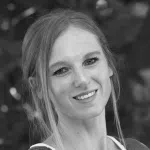
Alison Heyerdahl
Senior Financial Writer
Alison joined the team as a writer in 2021. She has a medical degree with a focus on physiotherapy and a bachelor’s in psychology. However, her interest in forex trading and her love for writing led her to switch careers, and she now has over eight years experience in research and content development. She has tested and reviewed 100+ brokers and has a great understanding of the Forex trading world.
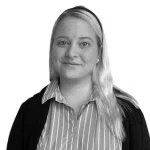
Ida Hermansen
Financial Writer
Ida joined our team as a financial writer in 2023. She has a degree in Digital Marketing and a background in content writing and SEO. In addition to her marketing and writing skills, Ida also has an interest in cryptocurrencies and blockchain networks. Her interest in crypto trading led to a wider fascination with Forex technical analysis and price movement. She continues to develop her skills and knowledge in Forex trading and keeps a close eye on which Forex brokers offer the best trading environments for new traders.
References
These documents were used in the inspiration, research and data collection for this article.




























